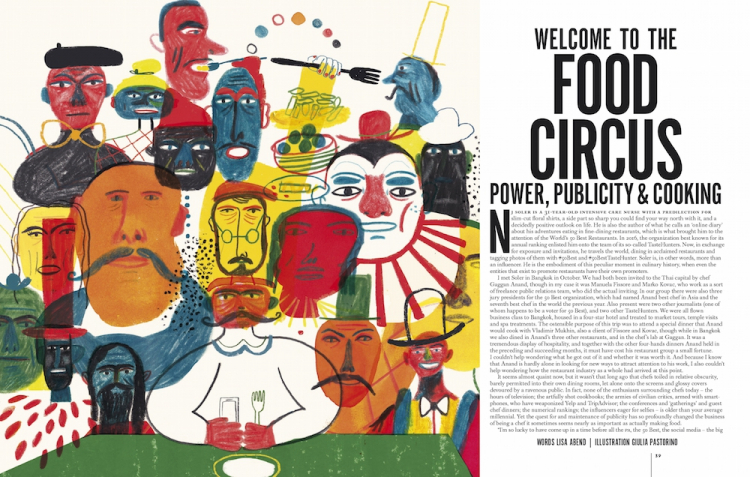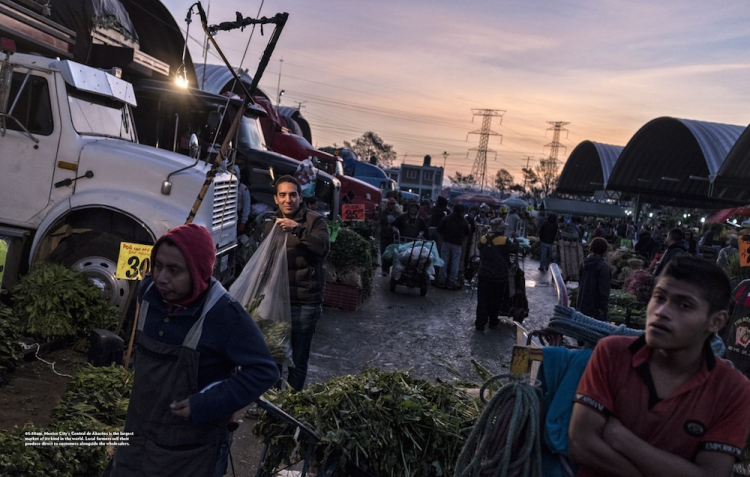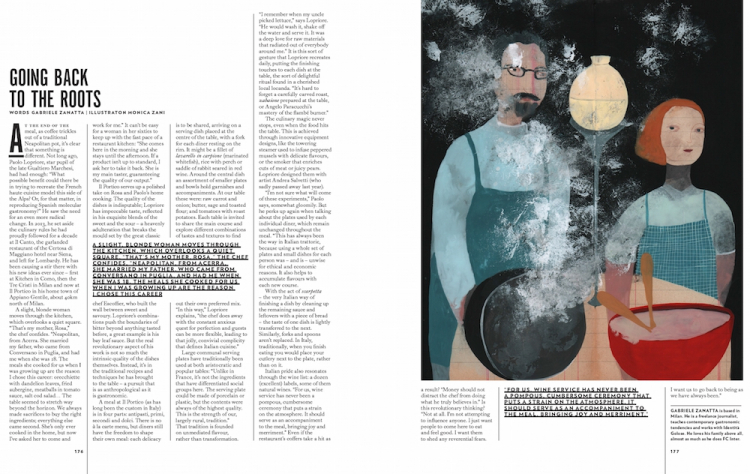The seventh issue of one of the most interesting editorial projects worldwide was out a few weeks ago. It’s called Fool magazine and it’s published in English by a couple of Swedish authors from Malmö, Lotta and Per-Anders Jorgensen, respectively art director and photographer.
Watchful readers perhaps remember Fool#4, entirely dedicated to Italy, with the brigade of Osteria Francescana in Modena portrayed in the cover as if it were a scene from Federico Fellini’s "8 ½". Sometime before, after receiving the title of “Best gourmet magazine in the world” from the Gourmand Awards, Per-Anders presented the editorial project on our website.
Issue number 7 lives up to the expectations. The title is “The Political Issue”. The choice of fil rouge is clearly explained in the introduction: «Politics in food and gastronomy is a huge subject, with news about climate chamge, fishing quotas, bee colony collapse, plastic bans, food safety, land grabs and food scams filling the media every day».

The beginning of the dossier by Lisa Abend, illustrated by Giulia Pastorino
All these topics are analysed in a real 188-page book – with a hardcover, for the first time –, with beautiful photographs and illustrations. For the sake of gender equality, you can choose whether to buy the cover with a female face (
Bo Songvisava of
Bo.lan in Bangkok) or the male version (
Aaron Turner of
Igni, in Australia) or " why not by both?", they joke. What’s surprising is that it’s ad free: «It doesn't make sense from a financial perspective», the
Jorgensens, partners in life too, explain, «but we just feel we have to do it, in a world where there are fewer and fewer indipendent voices». For sure, all the authors involved in this issue, important food reporters, think without any conditioning.

The Central de Abastos market in Mexico City, in a photo by Per-Anders Jörgensen (reportage by Nicholas Gill)
Fool #7 is an artistic collage of attentive historical analysis (the black and white twenty-year-long genesis of the “Food Circus” by
Lisa Abend), a mini-graphic novel ("The mystery of the stem cell Patty” by
John Bradley), stories of suffering (the tragic portrait of the situation in Venezuela by
Sasha Correa), epiphanies of angry and enlightened chefs (
Songvisava herself, seen by
Perm Paitayawat, Mexican
Oswaldo Oliva portrayed by
Nicholas Gill, the rebirth of American
Will Goldfarb in Bali by
Lotta Jorgensen or Australian
Aaron Turner presenting his own story), moving re-enactments (“Tales of a Bektasi table” by Turkish
Cemre Narin).
All the content urges the reader to think, to look at things under an unusual and global point of view, one that with agility leaps over banal recipes, technicalities and easy praising. Stories that make our thoughts less provincial.
Speaking of which, we’d like to mention there’s also some space for specifically Italian themes in Fool #7. There’s “Wein Skandal”,
Christian Selier’s reconstruction of the years of wine with methanol in our country (and of the adulterations in Austria); a rich dossier on Sardinian cheese with worms,
casu marzu, by British
Joshua Evans, and a short piece by myself on
Paolo Lopriore’s new work
in Appiano Gentile.

"Ritorno alle radici": the article on Paolo Lopriore, illustrated by Monica Zani
A small personal anecdote: during the editorial work, I was struck by the fact that after sending my article in Italian, I received the translation in English, but it was twice as long. In the Word file, for almost every line there was a question from the Swedish editorial staff: they took nothing for granted, they wanted every small doubt to be cleared, making the story accessible to a global audience. It’s called fact checking, and unfortunately it’s a process that risks extinction, on a global editorial scale.
This is coherent with the instructions given by the
Jorgensens at the begininning of the book: «We shouldn't trust or rely on politicians to make changes fot the better», they say, «We have to start thinking - and acting for ourselves». Starting from the smallest things. What we’re capable of.
Translated into English by Slawka G. Scarso